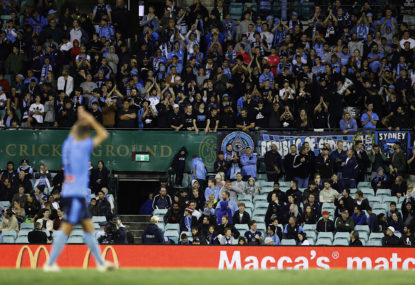Modelling the future A-League: How Australian football can look to Scotland for a more exciting and competitive product
SPFL is a good hybrid model between a first past the post season and a finals series and can reduce the number of dead rubber games.































































































With due acknowledgement to The Australian Financial Review and its authors Peter Ker and Michael Bleby:
“The financial future of the group became more clouded in the past week, when wind-up applications were filed to the Australian Securities and Investments Commission for both the entity that runs the professional soccer team, WMG Football Club, and the related party that is planning the property development, WMG Holdings Co.
The identity of those applying for the wind-up order was not clear on Thursday, but both entities have been issued with notices of default by creditors in the past two months.
According to CreditorWatch, WMG Holdings has had a $50,000 bill outstanding to civil engineering company Lanco Group since September 2022 and Lanco filed a notice of default earlier this month. Commercial cleaning company Gravitas Commercial has been owed $5098 by WMG Football since September and filed a notice of default in February.
Western United entered the A-League in 2019 under a business model that was reliant on a greenfield residential housing development in Tarneit.
WMG Holdings was gifted 62 hectares of former farmland in Tarneit by Wyndham City Council on the basis it would use the site to build a 15,000-seat stadium for the A-League club and subdivide the rest of the property to make 900 homes. The group has taken longer than expected to raise the money needed for the 15,000-seat stadium, and Western United plays home games on the site in a smaller venue that can host 4000 fans.
The property development has also not yet started, but is critical to Western United’s business model, given the football club plays in front of small crowds and has lost money in recent seasons. The entity that runs the soccer team, WMG Football Club, lost $12.4 million in the year to June 2023.
WMG Football Club’s total revenue in that year was $6.9 million; well below its $11.6 million employee benefits expense in the same year.
There is no ownership link between WMG Football Club and WMG Holdings, meaning they are separate entities. However, the two companies have common shareholders, most notably Melbourne businessman Jason Sourasis, who controls about 80 per cent of both companies.
WMG Football Club also stated in its most recent accounts that it owed $44.1 million to “related parties” such as WMG Holdings at June 2023.”
This Socceroos squad has far more depth than any before it - including the Golden Generation